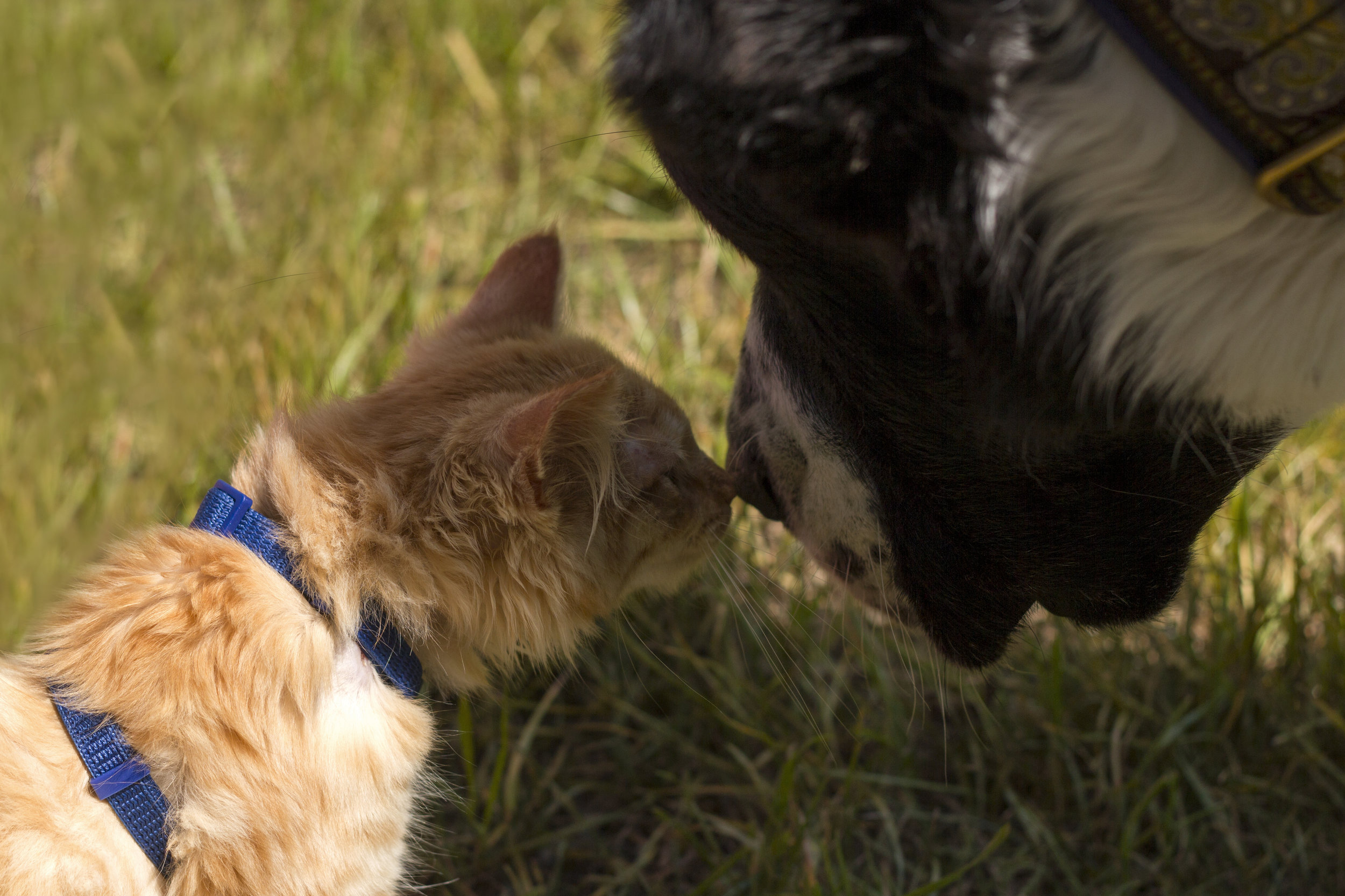Want to become a better dog trainer? Get a cat!
Want to become a better dog trainer? Get a cat!
By Tori Peterson
My cat, Peach and I training!
What? A cat to practice dog training? Yup! As someone who is a dog trainer navigating the world of cat ownership and training, there are some lessons that I have learned from my cat that make me a better dog trainer. For those of us that work with primitive dogs will find many similarities to training a cat as they are independent and work on their own terms. Personally, I ended up with a dog-like cat and a cat-like primitive dog. Here are some aspects of training that have improved my abilities by owning a cat!
PATIENCE
Cats are not as biddable as dogs in the way that dog trainers are used to (even one who owns a primitive dog), therefore patience is a necessary component to training cats. They may seem uninterested in the training session if they decide that it is boring or may act like they don't have an adequate attention span for training. But just remember that they are the ones meowing for a solid half an hour before dinner time! They can learn, it just takes some time and modifying the criteria that you are giving the cat. Even just training the cat when you are relaxed and have ample time to work with them is important so that you don't get discouraged if they seem to be taking longer to learn something.
CREATIVITY
Cats can become uninterested in a training session if the same behavior is repeated in sequential repetitions, so breaking up the session with some play can help them relieve some energy or motivate them to get back in the mood to train. By applying this to dog training, even though my dog will happily work through a whole session, breaking it up with some play brings my dog back to the session rejuvenated and ready to work with gusto! Cats will test your creativity because they only work for the treats that they deem adequate, so finding what gets your cat excited will help the training process as they will be thinking of what they could possibly need to do to get that next amazing bite!
NO CORRECTIONS
A cat does not tolerate corrections. They will just walk away or disengage if they feel threatened or if your cat is like mine, she isn't phased by anything so there really isn't a way to punish her. This is a good reminder that using positive reinforcement motivates the animal to keep working. Training with positive methods strengthens the bond between you and the animal. Trainers who use aversive methods will find a fun challenge in training a cat as they will be forced to practice positive methods.
TIMING
Trainers know that timing is an extremely important aspect of the learning process. If you reward at the wrong time, your pet will be learning the wrong thing. For example, if you are working on targeting, you must "click" or say your marker word while the cat's nose is on the target as opposed to just after they have completed the task. By clicking too late, you are teaching them that what you want them to learn is to pull away from the target rather than touch it. Cats, especially kittens, will force the trainer to have clicker finesse because she's on your head or across the room if you don't reinforce quick enough.
"Cats, especially kittens, will force the trainer to have clicker finesse because she's on your head or across the room if you don't reinforce quick enough."
SESSION LENGTH
Trainers tend to keep the session going longer than they probably should sometimes. Having a cat that will just walk away or disengage can remind a trainer to keep sessions short and fun. This is a great point to keep in mind when training dogs, because they will continue to take treats until their brains are fried. Ending on a strong, positive note can really improve training sessions, leaving the animal wanting more!
Peach and her Central Asian Shepherd sister Nikita
WHY BOTHER?
If it's so hard to train a cat then why do it? Just like training primitive dogs, it is a super rewarding (sometimes challenging) experience to build a relationship with an animal through teamwork. Also, domestic cats tend to live boring lives, seemingly sleeping away most of it. Training your cat can improve their quality of life by engaging with you, your family, and friends, boost confidence, reduce behavioral issues, and creating a more enriching environment.




